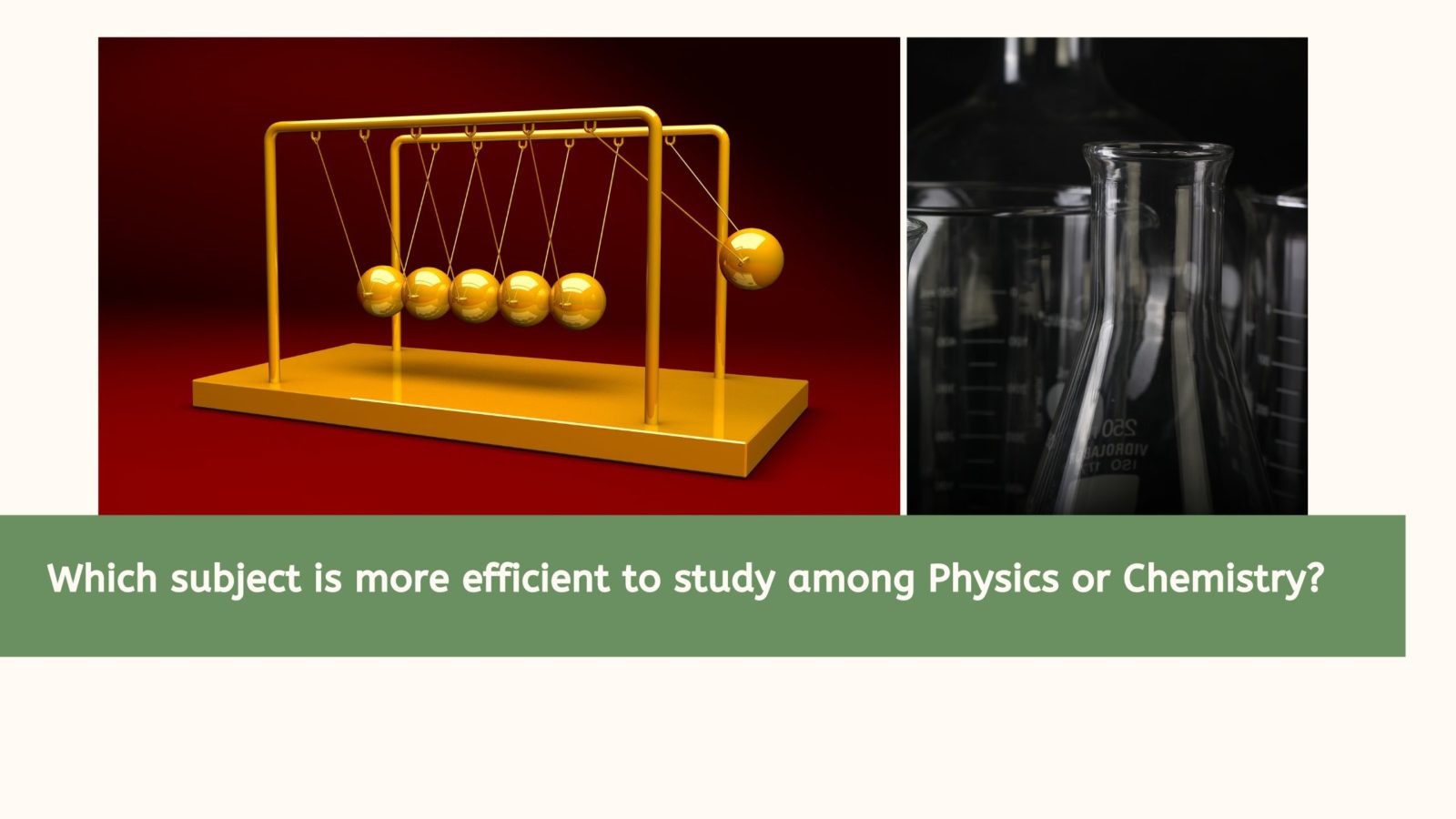Because some of the concepts overlap, chemistry and physics are frequently confused. But it’s also very easy to fall confused if you haven’t personally learned about both subjects. Things get even more complicated because chemistry and physics are two fields focusing on the science of matter. In spite of this, there is a noticeable distinction among the two subjects. Thus, in an effort to provide more detail, this article will clarify these distinctions and put an end to any confusion. In order to begin the difference between these two, students should also understand that both the subjects have their own importance. Physics are generally considered difficult by the students and they often avail the service of pay someone to take my online physics class. And also due to the multiple assignments given by teachers, students use online assignment help service so that they can get rid of writing multiple assignments on the same time.
Know the difference between physics and chemistry
Which academic field are you most interested in, physics or chemistry? Both disciplines have implications for many sectors and provide distinctive perspectives on the environment. The choice of which is more beneficial can be arbitrary and is based on personal preferences, professional objectives, and real-world uses.
Let’s examine the benefits of physics and chemistry to assist you in making a wise choice.
- Recognizing the Fundamentals
Chemistry
- Chemistry is an examination of matter, including its makeup, chemical properties, and transformations.
- It investigates how particles and atoms interact, offering knowledge about chemical processes and the synthesis of compounds.
Physics
- Contrarily, physics examines the basic concepts that underpin the cosmos, including power, movement, actions, and the composition of matter.
- It includes a number of subdivisions, such as the theory of quantum the laws of thermodynamic electromagnetic attraction, and mechanisms.
- Real-World Implementations
Chemistry
- Chemistry has significance in many different domains, such as production, each of material science, medications, farming, and ecology.
- Chemists create environmentally friendly substances, study pollutants, create novel medications, and enhance industrial procedures.
Physics
- There are a lot of real-world uses for physics, from engineering and technological advancement to space travel and medical.
- Physicists create innovative technologies, create cutting-edge materials, enhance diagnostic methods, and conduct the astrophysics and cosmic theory to learn more about the universe.
- Professional Life
Chemistry
- A bachelor’s degree in the subject matter may result in a number of various occupations, including those in ecological consulting, research, logical, medicinal products and forensic science, as well as chemical engineering.
- Laboratory Services, academic institutions, governmental organizations, and sectors including food, medicine, and energy employ chemists.
Physics
- Careers for college graduates in physics include medical scientists, aviation technician, data scientist, engineer, and astrophysics researcher.
- Academic institutions, research facilities, technological businesses, governmental organizations, and the aerospace sector employ physicists are also some career options for physics students.
- Benefit for the community
Chemistry
- Chemistry is essential to solving issues like contamination, worldwide warming, and medical care on a global scale. I
- In order to make the world happier and more environmentally friendly, chemists produce environmentally friendly compounds, sources of clean energy, and novel therapies.
Physics
- The science that propels technological advances advancement and creativity that molds contemporary society is physics.
- Physics supports many facets of everyday existence, promoting advance and enhancing our standard of life, from calculating and the communications industry to travel and space flight.
- Inter-disciplinary Relationships
Chemistry
- There are connections between chemistry and biology, healthcare, engineering, and ecological science, among other fields.
- Experts from various fields collaborate with chemists to produce interdisciplinary research and creative approaches to challenging issues.
Physics
- Working with disciplines like the field of engineering, information technology, biology, and astronomy, among others, also has multidisciplinary ties.
- Research initiatives that span disciplines use physics’ insights to solve problems in a variety of fields, including biophysics and nanotechnology.
- Academic Possibilities
Chemistry
- Chemistry studies offer a strong basis for higher education in fields such as ecology, engineering in chemicals, the field of biochemistry pharmacy, and chemistry.
- The possibilities for focused study and academic positions are provided by advanced degrees.
Physics
- Having a foundation in physics provides access to graduate programs in information technology, the field of engineering, astrophysics, and physics, among other related fields.
- Expertise in fields like particle physics, compressed matter physics, astrophysical research or theoretical physics is made possible by graduate degrees.
- Investigation and Originality
Chemistry
- Studies in chemistry spurs advancements in drug development, restoration of the environment, the science of materials, and energy sources that are renewable.
- To meet urgent social requirements and academic difficulties, scientists carry out tests, evaluate data, and create novel innovations.
Physics
- Studies in physics drives the frontiers of scientific understanding and technology, resulting in advances in fields like novel materials, atomic physics, quantum information technology, and cosmology.
- Scientists investigate the underlying principles of nature and use their discoveries in real-world contexts.
- Nature
Chemistry
- It is an examination of chemical interactions on a much bigger scale, along with the characteristics and various individual reactions.
- To be more precise, the field of chemistry is the study of how various chemicals and materials interact to form novel solutions, nuclear structures, and various other frameworks.
- Chemistry additionally focuses on finding new ways to identify molecules, which advances our understanding of the field and, on a broader scale, the world.
Physics
- Unlike chemistry, physics is an examination of nature and the cosmos; it examines both our surroundings and each particle in it.
- For instance, ideas like the force of gravity, other essential actions, and the generation of electricity are important topics in physics.
- There are seven distinct areas of physics. Although there is a ton of study on both topics, the concepts they address are completely different.
Conclusion
In the argument among physics and chemistry, both disciplines provide insightful analysis, beneficial uses, and intriguing job prospects. It is important to think about your interests, advantages, and future objectives when thinking about paying someone to take my online physics class or looking for online assignment help service. The decision among physics and chemistry eventually boils down to your desire to advance science and society and your enthusiasm for learning about the universe as a whole.
The more simple choice is really random and relies on your own tastes and abilities when choosing among physics and chemistry. Certain individuals find Physics simpler to handle as it primarily focuses on algebraic concepts and reasoning, whereas others favor Chemistry due to its combination of ideas, memory exercises, and practical laboratory work.
















